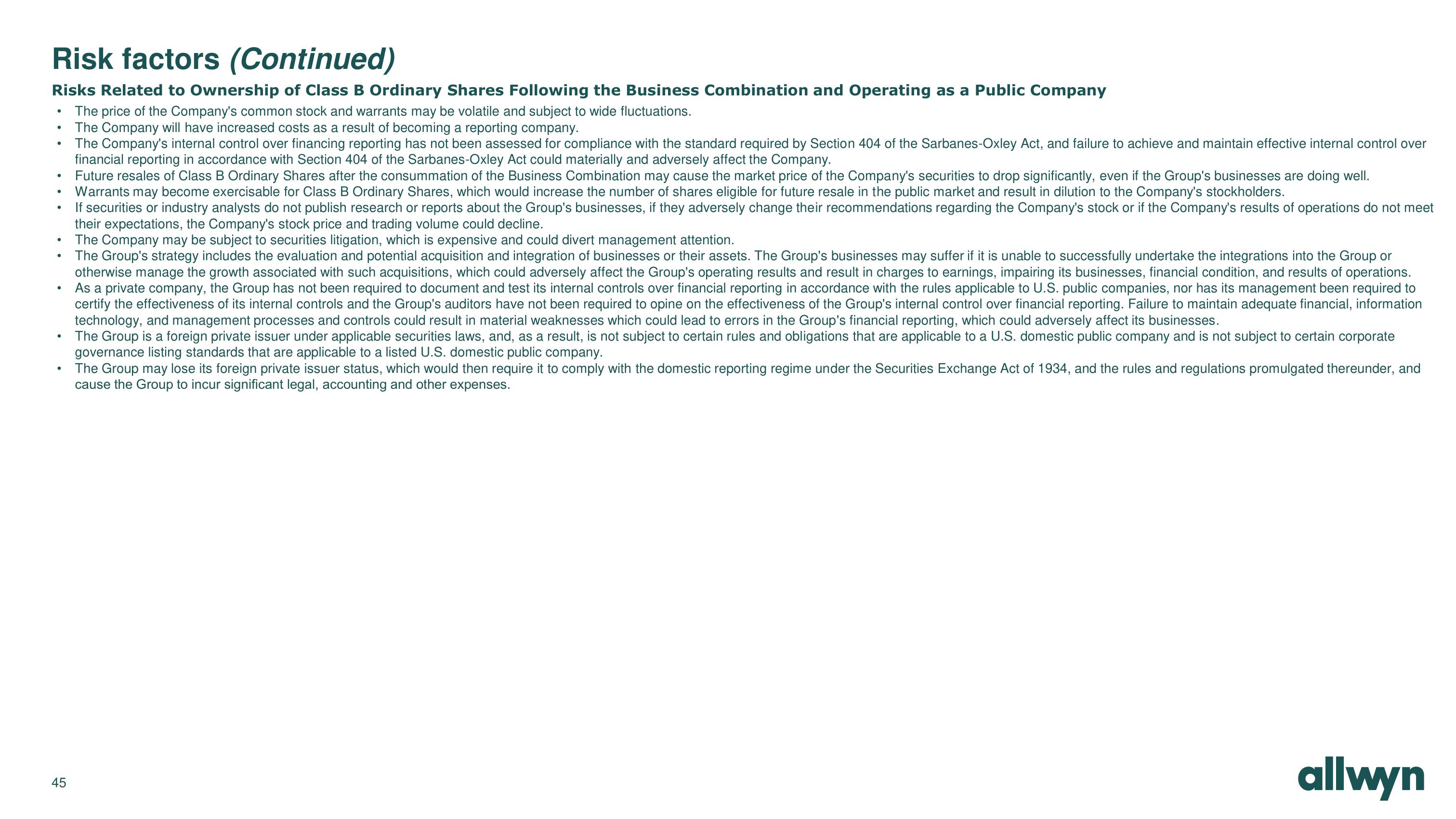Allwyn SPAC Presentation Deck
Risk factors (Continued)
Risks Related to Ownership of Class B Ordinary Shares Following the Business Combination and Operating as a Public Company
The price of the Company's common stock and warrants may be volatile and subject to wide fluctuations.
The Company will have increased costs as a result of becoming a reporting company.
The Company's internal control over financing reporting has not been assessed for compliance with the standard required by Section 404 of the Sarbanes-Oxley Act, and failure to achieve and maintain effective internal control over
financial reporting in accordance with Section 404 of the Sarbanes-Oxley Act could materially and adversely affect the Company.
●
•
●
●
●
45
Future resales of Class B Ordinary Shares after the consummation of the Business Combination may cause the market price of the Company's securities to drop significantly, even if the Group's businesses are doing well.
Warrants may become exercisable for Class B Ordinary Shares, which would increase the number of shares eligible for future resale in the public market and result in dilution to the Company's stockholders.
If securities or industry analysts do not publish research or reports about the Group's businesses, if they adversely change their recommendations regarding the Company's stock or if the Company's results of operations do not meet
their expectations, the Company's stock price and trading volume could decline.
The Company may be subject to securities litigation, which is expensive and could divert management attention.
The Group's strategy includes the evaluation and potential acquisition and integration of businesses or their assets. The Group's businesses may suffer if it is unable to successfully undertake the integrations into the Group or
otherwise manage the growth associated with such acquisitions, which could adversely affect the Group's operating results and result in charges to earnings, impairing its businesses, financial condition, and results of operations.
As a private company, the Group has not been required to document and test its internal controls over financial reporting in accordance with the rules applicable to U.S. public companies, nor has its management been required to
certify the effectiveness of its internal controls and the Group's auditors have not been required to opine on the effectiveness of the Group's internal control over financial reporting. Failure to maintain adequate financial, information
technology, and management processes and controls could result in material weaknesses which could lead to errors in the Group's financial reporting, which could adversely affect its businesses.
The Group is a foreign private issuer under applicable securities laws, and, as a result, is not subject to certain rules and obligations that are applicable to a U.S. domestic public company and is not subject to certain corporate
governance listing standards that are applicable to a listed U.S. domestic public company.
The Group may lose its foreign private issuer status, which would then require it to comply with the domestic reporting regime under the Securities Exchange Act of 1934, and the rules and regulations promulgated thereunder, and
cause the Group to incur significant legal, accounting and other expenses.
allwynView entire presentation